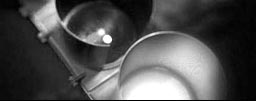|

Are
we loosing fat or muscle?
(Quinne - portmoodymom)
I got into a discussion this weekend with my DH and my friends
over dinner. We were discussing how I had lost 20 lbs on
this WOE and my DH is still totally shocked since I don't
watch the fat content of the food I have. He doesn't understand
it. But he figures I have lost muscle and not body fat. I
do have one of those scales that shows body fat and I have
really only gone down about 3 or 4%. Don't get me wrong,
I love this WOE and am not about to quit - but this does
concern me, I mean in the long run I really want to get rid
of fat don't I?
I am wondering what you all think? Do you think this is
true? Will this change as a result of my new incorporation
of excercise? When I workout on the treadmill I work at at
fatburning pace rather than an aerobic pace. Will I eventually
have to do weights in order to build muscle (if in fact I
am loosing muscle not fat)?
Don't
Worry
(Cherish - mare_serinitatis)
Don't
worry, Quinne. If you're losing any muscle at all, it is
a lot less than any other WOE. When you get hungry
and have low insulin levels, the first place your body will
look is your fat stores. When you have high insulin levels
(when you eat lots of carbs), your body thinks that the fat
stores are hands off and will then proceed to steal nutrients
from the muscles to compensate. This WOE makes sure to keep
your insulin levels down so that you access your fat stores
and also provides enough protein to keep your muscles maintained.
As far
as exercise goes, the only way to build muscles is
to lift weights. However, when you do your treadmill at
aerobic pace, you could also build muscle. At 'fat burning'
pace,
the body doesn't feel deprived of oxygen or blood sugar.
If you do it at a higher rate, it will start accessing
muscle stores. This may sound bad, but if you have protein
right
after exercising, it should replenish that the same way
it would if you were lifting weights and do better for
your
cardiovascular health. Also, you'll simply burn more fat
calories overall... (But if you get too tired out, I wouldn't do it...but just
a thought...if you're on the treadmill anyway and doing things
at aerobic pace doesn't bother you, then it's better for
your overall health and especially for your leg muscle tone.)
BTW, when I dropped 75 lbs., I lost only about 10 or 15
percent body fat. There are a lot of factors that affect
those readings, including and especially hydration (the less
hydrated you are, the more body fat it will read...). So
if you took your first reading when you were fairly hydrated
and the second when you were not, then it may have underestimated
some of it. Those things aren't *100%* accurate...the most
accurate method is to have someone do measurements with calipers,
and I've found a lot of variance between the machine and
someone actually taking measurements.
The other thing is that about 100-120 lbs. of your body
is not fat. The ideal, I believe, is somewhere around 25%
body fat for women. So if 110 lbs. of your body is *not*
fat, you'd probably want to have about 28 lbs. that are fat,
giving you an ideal weight of 138. However, the higher weight
you actually do have, the more pounds it takes to make a
percentage point. So at the scenario I described, about 1.5
lbs. makes 1% of your body weight. Between 170 and 200 lbs.,
2 lbs. is 1% of your body weight. So if you lost about 10
lbs. water weight (which is what I did when I started this
WOE) and 10 lbs. fat (which would probably look like 4-5%
on your scale), you probably didn't lose any muscle. :-)
|




